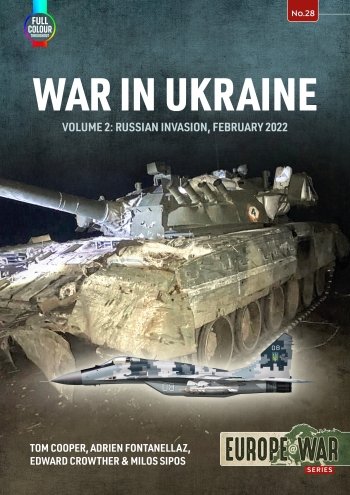-
Załączniki bezpieczeństwa
Załczniki do produktuZałączniki dotyczące bezpieczeństwa produktu zawierają informacje o opakowaniu produktu i mogą dostarczać kluczowych informacji dotyczących bezpieczeństwa konkretnego produktu
-
Informacje o producencie
Informacje o producencieInformacje dotyczące produktu obejmują adres i powiązane dane producenta produktu.HELION
-
Osoba odpowiedzialna w UE
Osoba odpowiedzialna w UEPodmiot gospodarczy z siedzibą w UE zapewniający zgodność produktu z wymaganymi przepisami.
On 24 February 2022, eight years after invading the Crimean Peninsula of Ukraine and organising an illegal referendum in support of a subsequent Russian annexation, President of the Russian Federation Vladimir Putin ordered a full-scale invasion of Ukraine. Both Western and Russian intelligence services expected the invasion to quickly topple the democratically elected government in Kyiv and, with the help of collaborators, to overrun the Ukrainian armed forces in a matter of between 3 and 14 days.
Early on 24 February, the Armed Forces of the Russian Federation (VSRF) launched a series of missile and artillery strikes on the main air bases and dozens of other military facilities in Ukraine. Immediately afterwards, the VSRF launched a ground invasion, with its forces advancing on Kyiv, Chernihiv, Kharkiv, Mariupol, Melitopol, and Kherson. Although following a build-up that had begun in April 2021, and expected by many, the onslaught still came as a major surprise for the Ukrainian government, the Ukrainian armed forces, and the majority of its allies in the West, and also for the mass of officers and other ranks of the VSRF, many of whom believed that they were only to participate in exercises.
However, the deeper the Russians rolled into Ukraine, the more resistance they encountered: while some Russian units performed as expected, elsewhere whole armies began falling apart when ordered to advance at maximum possible speed without the necessary firepower and logistic support. After suffering catastrophic losses while failing to reach downtown Kyiv, and failing to reach and enter Chernihiv and Kharkiv, the war in northern and north-eastern Ukraine quickly settled down into a bloody stalemate. In the south, the Russians initially advanced at an astonishing rate, securing Melitopol during the second day of their invasion, and Kherson only a few days later. It was only once President Putin attempted to accelerate the rate of advance through ordering heliborne operations deeper into Ukraine that the VSRF suffered a severe blow in the fighting for Voznesensk and Mykolaiv, and its advance in this part of the country also came to an end.
Richly illustrated with colour photography and full colour artworks, and providing a detailed study of the organisation and order of battle of the armed forces involved on both sides, Volume 2 of War in Ukraine provides the first detailed account of the first two weeks of the Russian invasion of Ukraine in 2022.












